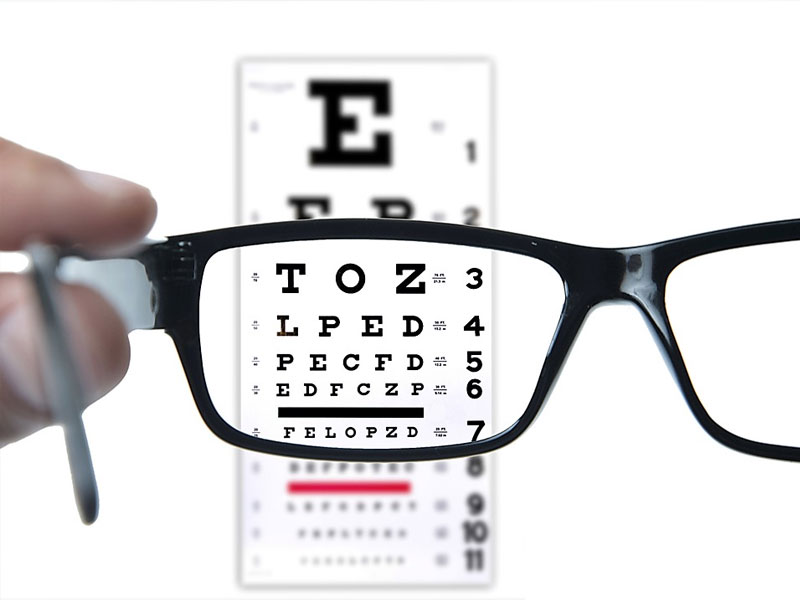Progressive Lenses
Over the years, our eyes’ capabilities change. Typically, after 45 years old, we realize that we cannot focus correctly when reading a newspaper. We get tired of reading a few pages of a book and we are not quite able to focus on the very small words at close range. Unfortunately this means we are growing old and we can not do anything about it. It is time to wear reading glasses!
Fortunately wearing glasses today has a social impact significantly different than a few years ago, so it is no longer to be considered a defect.
Not everyone has the same needs, though. Someone with a distance visual disease might be very disappointed when a second pair of eyeglasses is needed.
Why not progressive lenses instead of two pair of eyeglasses (sometimes three), that have to be used almost at the same time?
First of all you need to understand what are the progressive lenses. To make it simple, they are the lenses that will give the wearer the opportunity to focus an object at any distance located between 5m/infinite and 33cm.
There is sometimes a lot of confusion regarding progressive lenses. Some have excessive expectations and others, being perhaps become aware of various problems experienced by relatives or friends, start already prejudiced towards this type of optical correction.
We must first be specific on what advantages and disadvantages they offer.
1) Progressive lenses are not the panacea for all visual diseases. It’s not possible to go back in time and recover the perfect vision one had when 20 years old. Having said that, today progressive lenses are, in most cases, the best compromise between the aesthetic, functional and practicality of use.
2) It should be clear that progressive lenses, due to imperative requirements related to the construction of the lens, need the wearer to target the eye in areas dedicated to each distance: the upper part for distant vision, lower part (center) for the near, etc .. Therefore an opposition attitude (“I do not accept to lower the head on the stairs, or turn it to see the side mirror of the car, etc. “) will surely lead to failure.
3) We must also dispel the myth that progressive lenses are “universal lenses”, that work well in all conditions. Actually it would be more correct to consider them as “generalist” lenses, giving an average good vision in many conditions, but there are special situations in which other solutions can give better results. The office and/or prolonged use at the computer, for example, are the situations in which most progressive show their weakness. It then becomes a task for the optician to advise the most appropriate correction solution for those specific conditions of use (in this case, for example, a downward glass near-intermediate). At first it may seem absurd, after spending 600 Euros for progressive eyeglasses, having to spend another 300 for a pair of glasses to be left in the office, but I assure you that the benefits in terms of quality of vision are so great that all the rest is not so important. Are you using the same pair of shoes for all circumstances? Or maybe you have winter and summer shoes, elegant, walking, trekking etc …? The same should be done with glasses, not just one pair of glasses for all but more specific glasses for different activities.
Then we must say that for the success of a pair of glasses with progressive lenses, 3 things are needed, equally important:
1) A prescription as accurate as possible. I do not want to open a useless controversy on who is best between opticians and ophthalmologists, I only say that we are all human beings and therefore also the most credited luminary sometimes can give the wrong prescription that may nullify any effort to set up the best eyewear.
2) The quality of the lens. On this point we must be clear. You cannot buy a cheap car and then expect it to run like a Ferrari, is way off. As in all things, even here the rule is that “the more you spend, the more you buy”, so before saying that your optician is a thief, please try to know the product he is using. If you want to go to savings, do not demand performance like Ferrari, but settle for those of a cheap car (what you pay for)!!!
3) The accuracy and professionalism in the detection of the parameters and the subsequent assembly of the lenses on the frame. Errors here could negate the advantages of the most expensive lenses, therefore, always seek advice from an optician that you fully trust (even better if optometrist) and try to have with him a comparison report and constructive. Avoid, if possible, “discounts” or chain stores because, as I said, nobody gives anything for nothing.
One last thing, if your progressive does not work do not bring it to the eye-doctor. The ophthalmologist is the medical specialist who deals with eye health, in most cases does not know much about progressive lenses (if he knows something is just for his personal interest and not for his studies), does not know the various types of lenses on the market, is not able to determine the centering and especially does not own any tool to tell the quality of the lens and the work done by the optician, so your questions about these topics can only lead to a circumstantial answers. If you have problems with your progressives, go back to the optician, and if you are not satisfied with him, then change optician!!!



